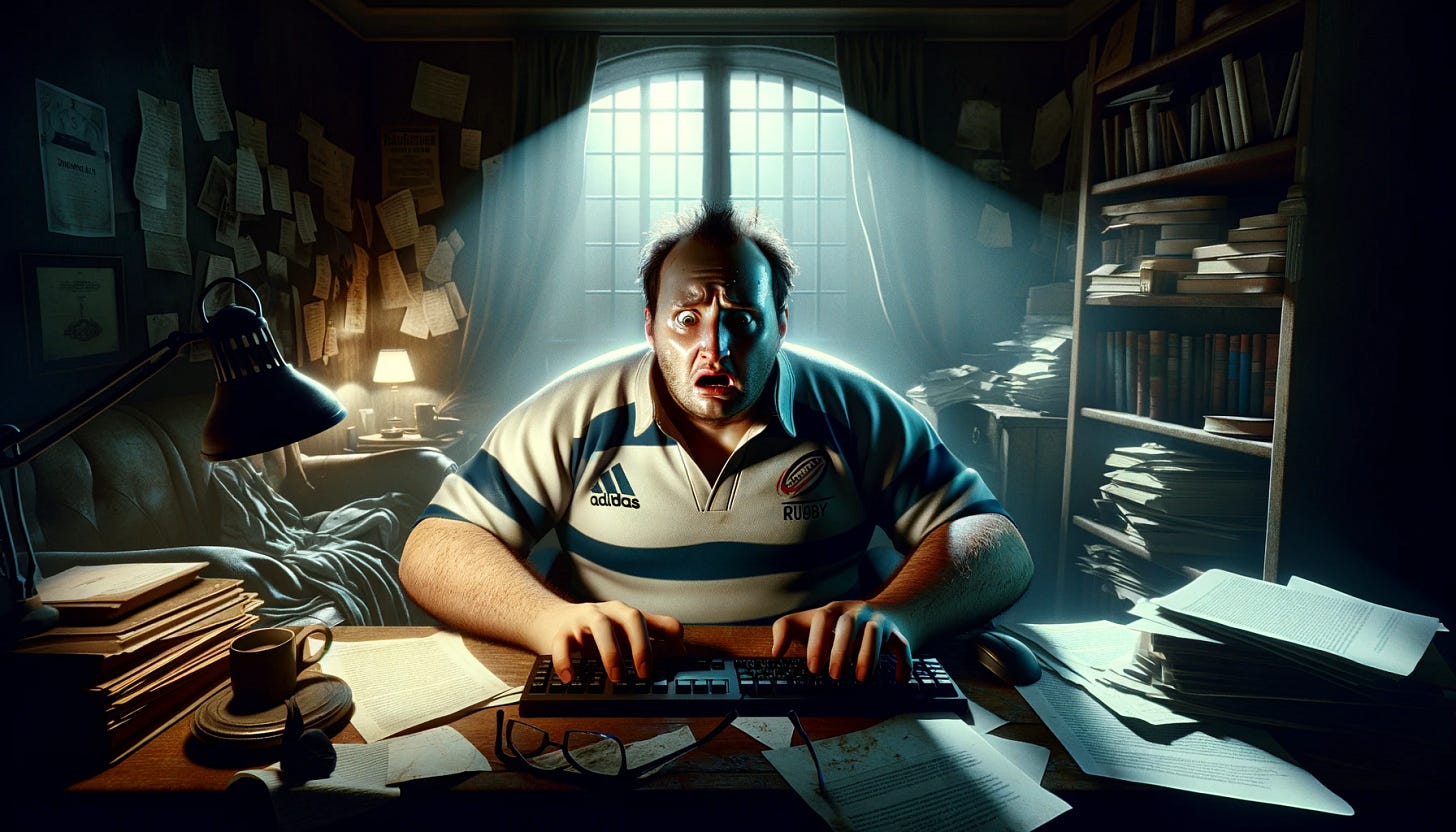Fear
How it held me back from writing about energy
I played most of my rugby career filled with fear.
It didn’t start that way, and when I retired, I was determined not to let the second chapter of my life be consumed by it too.
But it has, and last week’s post about the human energy crisis was the first time I wrote without fear, and felt it was some of my best.
I’m obsessed about energy levels because I’ve had wild fluctuations of them.
Exhilarating highs and depressing lows (no I do not have bipolar) and our energy levels not only influence our mood, but shapes our character.
Or perhaps the obsession comes from my belief that having energy is key to achieving anything, whether it’s doing great work or raising a family.
I’ve started understanding why I have wild swings in energy, and how to manage them better, as my average energy level is higher and more consistent than ever.
And I’ve been wanting to write about energy for years. But I didnt’t because I feared people would think I'm crazy, which will ruin my reputation as a sane, stable person.
When people hear energy, I worried they’ll think I mean crystals, taro cards and star signs - which are stupid because our energy is mostly within our control, and not governed by some mythical force.
But they didn’t and if I communicate my thoughts clearly, and back them up with what the research is saying, then maybe… just maybe… people will think I’ve not lost my marbles and realise the human energy crisis is one of the most important issues we face.
A couple of things happened recently that made me realise fear was holding me back in my writing.
I’ve just finished reading horror author Stephen King’s autobiography On Writing, and loved it even though I’ve never red any of his books.
It starts with him telling short stories about his life and how he fell in love with writing, before getting into his writing process and shares some tips.
And one of the first tips was an observation about what makes for good and bad writing:
“I’m convinced that fear is at the root of most bad writing”
Wow! I thought he was going to cover how people structure their paragraphs or some finer details about grammar.
But no, it was fear, and how it stifles creativity, causing us to muddle our words and hold back from expressing what we really think.
All of which prevent the writer from truly connecting with the reader.
He then says people write passively because they fear not being taken seriously and avoid getting to the point, and that good writing is often about just letting go of fear and speaking your mind.
Writing passively is “The woman gently closed the door shut” when you should just say “She slammed the door”.
The second speaks confidence, and my writing was incredibly passive and I avoided writing about what I wanted to.
But reading King’s book gave me the courage to back myself and just write.
The other thing that happened that reminded me to tackle my fear came while interviewing Dylan Alcott.
The former Australian of the Year came to the Dock to speak with the Running for Resilience crew, and I asked him:
“Think of the hardest moment of your life. Is there anything you wish you could go back and tell yourself?”
“Be proud of your difference”
It’s a question we ask everyone in The R4R Rag and his answer made me realise that I’ve been shying away from how I’m different.
I’m a normal bloke. But I haven’t had a normal life.
This means the way I view life is different, and that’s ok.
So with all that said, it’s time to be proud of how I see the world and get straight to the point. No more waffling and shying away.
Thank you Stephen and Dylan.


I think fear doesn't just stop writers connecting with readers, it stops people from connecting with people in general. Fear of rejection/not being liked, fear of their judgement of us. Does it matter if people think you're crazy or have lost your marbles?
Good post . Balancing confidence is often tricky.
A little tip : I generally use Dragon voice recognition software. I dictate!
Perhaps dictation quells fear in writing.
Energy a different topic however it must be primarily mind over matter “ I feel fabulous “ v “ I’m wrecked “.
It’s amazing what we can do when put under pressure. The mind can kick in.
One of my old rugby coaches used to say the most intelligent guys were props ! Mind over matter when put under pressure!
I played 10. I was a genius!